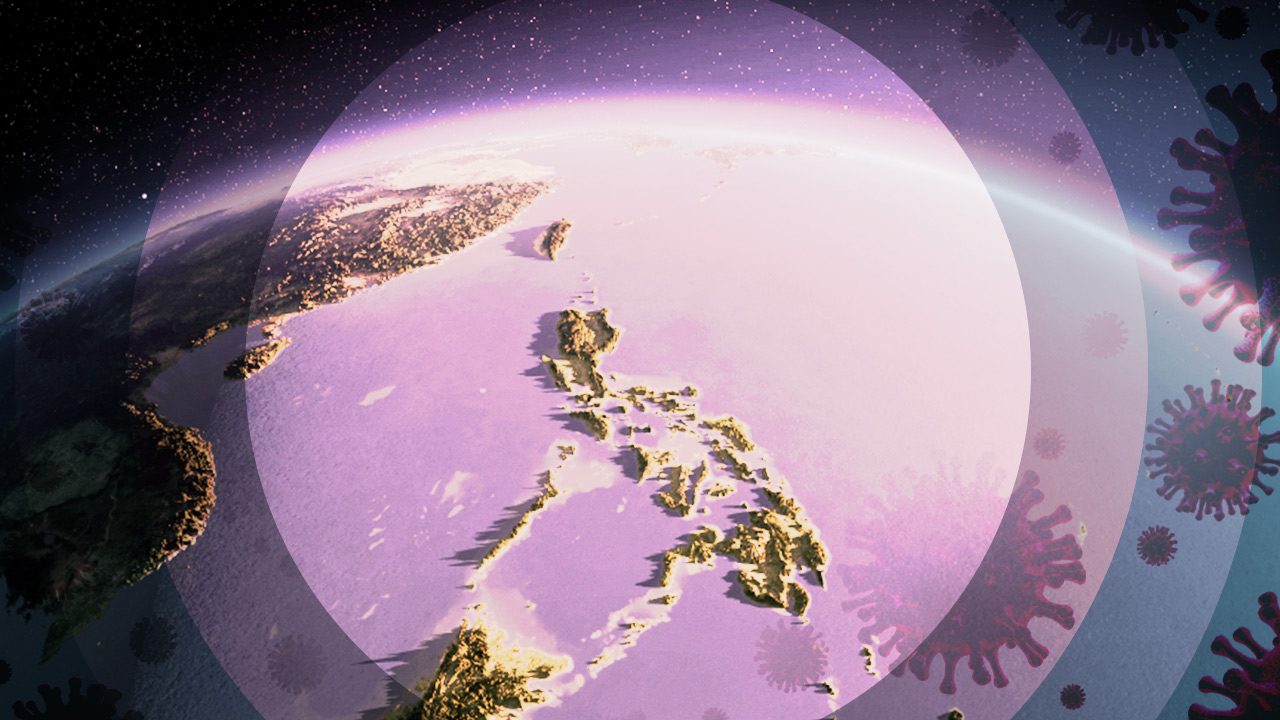SUMMARY
This is AI generated summarization, which may have errors. For context, always refer to the full article.

MANILA, Philippines – As the world marks the 50th celebration of the Earth Day movement, socioeconomic think tank Ibon Foundation said the country is currently facing the “worst ecological crisis:” the coronavirus pandemic.
In a webinar on the state of the Philippine environment on Wednesday, April 22, IBON Foundation executive editor Rosario Bella Guzman explained that the coronavirus crisis has ecological roots. She said that environmental concerns such as land use changes and urbanization have hindered the people from addressing the coronavirus crisis properly.
Guzman also said these ecological issues are not properly addressed by government priorities.
“In the last 40 years, it is the profit-motivated economic activities of few corporations, few individuals that have brought this ecological crisis,” Guzman said.
In its new edition of The State of Philippine Environment, IBON Foundation pointed out that the country boasts of its tropical forests as one of the most biologically diverse in the world. Yet in recent years, they have also been among the most threatened.
The think tank said nearly 74% of the country’s total land area is now either severely or very severely degraded due to soil erosion. In 2015, the total forest cover of the Philippines stood at 7 million hectares, shrinking from 10.9 million hectares 45 years ago.
Guzman said that the culprits for this degradation are the very few corporations, oligarchs, politicians, and other individuals who have consistently benefitted from land extraction and dirty energy engineering.
Government priorities, which tend to support land use conversion and large-scale mining, also contribute to environmental destruction. Guzman said the government’s policies have been consistently “neoliberal, pro-foreign, pro-business, and anti-environment.”
Deforestation, urbanization, and coronavirus
Although the coronavirus crisis has a zoonotic origin, Guzman said deforestation and urbanization played a role in its spread.
Due to deforestation, Guzman said animals are forced out of their natural habitat. The carriers of the virus made its way to the urban areas.
Urban areas, which are densely populated, are more vulnerable to hazards and pandemics. “Urbanization in the Philippines is always associated with poverty and diseases,” Guzman said.
Using government statistics on population and Metro Manila homes, IBON Foundation said 3 of 10 homes in Metro Manila aren’t big enough for the prescribed physical distancing, based on government data. This figure doesn’t include cases of many different families living under one roof.
“‘Yung sobrang cramped na ng ating Metro Manila homes and population ay talagang napaka-imposible to practice physical distancing na gustong maging virus containment measure,” Guzman said.
(With Metro Manila’s cramped homes and population, it’s impossible to practice physical distancing as a containment measure against the coronavirus.)
Guzman added that 1 in 4 Metro Manila residents is an informal settler. More than half at 51% of informal settlers live in “danger areas.” One in 4 families also has shared or unimproved sanitation facilities, or none at all.
While it’s best to examine the country’s health system during this pandemic, Guzman said it’s also apt to take a look at the environment, especially during the celebration of Earth Day.
“Our environment is very much devastated, degraded, that has rendered us helpless and very vulnerable to this pandemic,” Guzman said. – Rappler.com
Add a comment
How does this make you feel?
There are no comments yet. Add your comment to start the conversation.